In the ever-evolving world of digital marketing, influencer marketing has emerged as a powerhouse, transforming the way brands connect with their audience. With businesses making an impressive $5.20 for every $1 spent on influencer campaigns, it’s no wonder this strategy has captured the attention of marketers worldwide. It’s not just about the numbers; it’s about building genuine connections and leveraging trust. Influencer marketing allows brands to tap into the authentic relationships influencers have built with their followers, creating more meaningful and impactful brand experiences.
As someone who’s navigated the digital marketing landscape, I’ve seen firsthand the shift towards more authentic and relatable content. Influencer marketing stands out not only for its effectiveness but also for its ability to resonate deeply with consumers. In a world where 70% of teens trust influencers over traditional celebrities, the impact of this marketing strategy is undeniable. This trust translates into enhanced brand credibility, as influencers are viewed as peers rather than distant celebrities, making their recommendations more relatable and trustworthy to their followers.
Let’s dive into the intricacies of influencer marketing and uncover why it’s not just a trend, but a pivotal component of modern marketing strategies. We’ll explore how influencer marketing can increase brand awareness, build authority, enrich your content strategy, improve SEO, enhance customer engagement, and drive tangible business results that resonate with C-suite executives.
1. Strategic Audience Engagement
Enhance Brand Visibility and Resonance
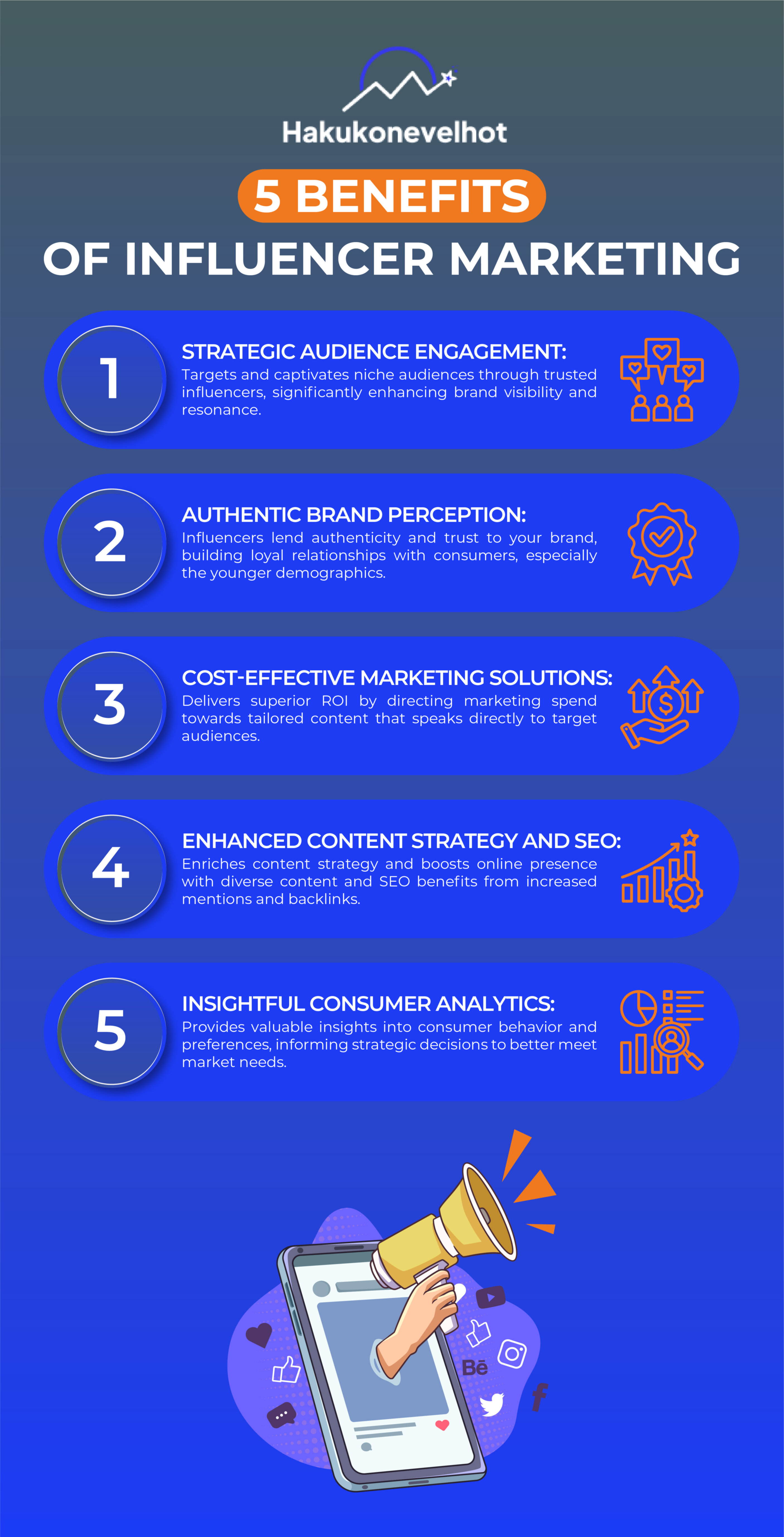
In the realm of influencer marketing, enhancing brand visibility and resonance is a crucial objective. I’ve observed that the most effective campaigns leverage influencers whose followers align closely with the brand’s target audience. This alignment not only boosts visibility but also ensures that the message resonates more deeply with potential customers. By partnering with influencers who share your brand’s values and aesthetic, you can tap into an already engaged audience, increasing the likelihood of your message being well-received and acted upon. This strategic approach to influencer selection can significantly amplify your brand’s reach and impact in a way that feels authentic and natural to the influencer’s followers.
Key statistics illustrate the profound impact of influencer marketing on engagement levels across different platforms. These metrics not only demonstrate the effectiveness of influencer marketing but also highlight the importance of choosing the right influencers and platforms for your brand. For instance:
| Platform | Followers < 1,000 Engagement Rate | Mega Influencers (>100,000 Followers) Engagement Rate |
|---|---|---|
| 7.2% | 1.1% | |
| 1.4% | 0.3% | |
| TikTok | 9.38% | 5.3% |
These numbers highlight a trend: influencers with fewer followers often achieve higher engagement rates. This is particularly true on platforms like Instagram and TikTok. For brands, this means that partnering with micro-influencers, often regarded as more authentic and relatable by their followers, can significantly enhance brand visibility and resonance among niche audiences. This trend underscores the importance of looking beyond follower count and focusing on engagement rates and audience alignment when selecting influencers. By prioritizing authenticity and relevance over sheer reach, brands can create more meaningful connections with their target audience and achieve better ROI on their influencer marketing investments.
Moreover, EA Sports‘ strategic use of TikTok to promote Apex Legends underlines the power of choosing the right platform and influencer to maximize visibility. Their collaboration with influencers like Brent Rivera not only garnered significant likes but also succeeded in attracting a younger, highly engaged audience to their title. This case study demonstrates how aligning your brand with the right influencers on platforms where your target audience is most active can lead to significant increases in brand visibility and engagement. It also highlights the importance of tailoring your influencer marketing strategy to the unique characteristics and user behaviors of each social media platform.
Recognizing the importance of authenticity and trust, I recommend aligning with influencers who share genuine interest and enthusiasm for your brand. Their genuine endorsements are more likely to resonate with audiences, fostering a deeper connection and trust towards your brand. This approach not only enhances the credibility of your marketing messages but also helps in building long-term relationships with influencers. Such partnerships can lead to more consistent and authentic brand representation over time, as the influencer becomes a true advocate for your products or services. Additionally, audiences are more likely to engage with and trust content that feels genuine and unforced, leading to higher conversion rates and brand loyalty.
Utilizing tools and platforms like Upfluence can streamline the process of finding these genuine influencers, ensuring a more strategic approach to audience engagement. These platforms offer data-driven insights into influencer performance, audience demographics, and engagement rates, allowing brands to make more informed decisions when selecting influencer partners. By leveraging such tools, brands can not only identify influencers who align with their values and target audience but also track the performance of their influencer campaigns in real-time, enabling them to optimize their strategies for maximum impact and ROI.
In addition to leveraging influencers with aligned audiences, paying attention to regulatory guidelines is paramount. Recent actions by the FTC and regulations in countries like Australia and the UK emphasize the need for transparency in influencer marketing. These regulations ensure that endorsements are not only effective but also ethically sound. Compliance with these guidelines is crucial not only for legal reasons but also for maintaining consumer trust. Transparent influencer partnerships, where sponsored content is clearly disclosed, can actually enhance credibility with audiences who appreciate honesty and authenticity. Brands that prioritize ethical influencer marketing practices are more likely to build long-term trust with their audience and avoid potential reputational damage associated with non-compliance.
Adhering to these guidelines not only safeguards your brand’s reputation but also reinforces the trustworthiness of the endorsements, thereby enhancing brand resonance. By being transparent about sponsored content, brands demonstrate their commitment to ethical marketing practices, which can significantly boost consumer trust. This trust translates into stronger brand loyalty and can even lead to increased engagement, as consumers are more likely to interact with content they perceive as honest and authentic. Moreover, brands that consistently follow these guidelines position themselves as industry leaders in ethical marketing, which can be a powerful differentiator in today’s competitive landscape.
🛟Need help with your Influencer Marketing Strategy?
Petteri Pucilowski, SEO consultant of Hakukonevelhot (Search engine Wizards), has 15 years of experience navigating the complex field of Influencer marketing. If you need help with your strategy, please don’t hesitate to book an intro call with us. We offer SEO, Influencer marketing and digital marketing services to small and medium sized businesses.
2. Authentic Brand Perception

Build Loyal Relationships with Consumers Through Authentic Influencer Partnerships
One of the most significant advantages I’ve seen with influencer marketing is its unparalleled ability to foster genuine and loyal relationships between brands and consumers. Unlike traditional ads, which often interrupt the viewer’s experience, influencer endorsements feel more like a recommendation from a friend, thus adding a layer of trust and authenticity. Trust is the cornerstone of loyalty, and by partnering with influencers who genuinely love and use my products, I can ensure that the message conveyed to their audience isn’t just another advertisement but a credible endorsement. This authenticity is crucial in today’s market where consumers are increasingly skeptical of traditional advertising. When influencers share their honest experiences with a product or service, it resonates more deeply with their followers, leading to higher engagement rates and a stronger emotional connection to the brand. This emotional connection is what transforms one-time buyers into loyal brand advocates who not only make repeat purchases but also recommend the brand to others.
This approach not only elevates the brand’s reputation but also encourages repeat purchases and loyalty among consumers. I’ve found that engaging influencers for long-term collaborations rather than one-off posts contributes significantly to establishing these loyal relationships, as their audience receives consistent and authentic messages about my brand. Long-term partnerships allow influencers to develop a deeper understanding of the brand, resulting in more genuine and compelling content over time. This consistency helps to reinforce the brand message and values, leading to stronger brand recall and association among the influencer’s followers. Moreover, these sustained relationships often result in the influencer becoming a true brand advocate, whose enthusiasm for the product or service feels natural and sincere, further enhancing the brand’s credibility and appeal to potential customers.
Target Younger Demographics Through Authentic Influencer Engagement
Younger demographics, especially Gen Z and Millennials, are notoriously hard to reach through traditional marketing channels. They’re more likely to use ad blockers, skip ads, or simply not engage with traditional forms of advertising. However, influencer marketing offers a unique opportunity to penetrate these demographics effectively. Influencers, particularly micro-influencers on platforms like Instagram and TikTok, have a profound impact on their followers’ purchasing decisions. They’re viewed as peers rather than distant celebrities, making their recommendations more relatable and trustworthy. This peer-like relationship is crucial for building trust with younger audiences who value authenticity and personal connections. Influencers can showcase products or services in a way that feels natural and integrated into their lifestyle, which resonates more strongly with younger consumers who are often skeptical of overt advertising. By leveraging influencers’ creativity and understanding of their audience, brands can create content that feels native to the platform and aligns with the interests and values of younger demographics, leading to higher engagement and conversion rates.
By carefully selecting influencers whose followers align with my target demographic, I’ve been able to tailor my marketing strategies to reach younger audiences more efficiently. These influencers speak the language of their followers and know how to present my brand in a way that resonates with them, driving not only brand awareness but also engagement and conversions. This targeted approach allows for more personalized and relevant content creation, which is crucial for capturing the attention of younger audiences who are often overwhelmed with digital content. Influencers can provide authentic, first-hand experiences with products or services, offering valuable insights and recommendations that feel genuine to their followers. This authenticity not only increases the likelihood of engagement but also helps in building long-term brand loyalty among younger consumers who value transparency and relatability in their brand interactions.
3. Cost-Effective Marketing Solutions
In the realm of influencer marketing, I’ve observed firsthand how strategies that emphasize cost-efficiency can still yield impressive results. One crucial aspect of this approach involves focusing on achieving superior ROI by tailoring content to target audiences. This targeted approach not only maximizes the impact of your marketing budget but also ensures that your message reaches the most relevant and receptive audience. By leveraging the existing trust and engagement that influencers have built with their followers, brands can achieve higher conversion rates and more meaningful engagement compared to traditional advertising methods, often at a fraction of the cost. This cost-effectiveness is particularly valuable for small to medium-sized businesses or those with limited marketing budgets, allowing them to compete effectively with larger brands in the digital space.
Superior ROI by Tailoring Content to Target Audiences: Precision Marketing for Maximum Impact
Targeted content creation stands as a cornerstone of effective influencer marketing. It’s not just about reaching an audience; it’s about reaching the right audience. This precision ensures that marketing efforts resonate more deeply with potential customers, making them feel understood and valued.
By collaborating with influencers who align closely with my brand’s values and demographic, I can craft messages that speak directly to the intended consumer base. This targeted approach significantly boosts engagement rates, leading to a more favorable return on investment (ROI).
To illustrate, let’s peek at some data:
| Strategy | Avg. Engagement Rate | Conversion Rate |
|---|---|---|
| Broad Audience Targeting | 1.7% | 2.3% |
| Niche Audience Targeting | 3.5% | 4.8% |
These figures highlight the importance of tailoring content. When messages are crafted with a specific audience in mind, both engagement and conversion rates nearly double. This isn’t just good business; it’s smart marketing. By leveraging influencers’ insight into their followers’ preferences, I can further refine my content strategy to appeal to niche markets, thereby enhancing ROI.
Moreover, personalized content crafted by influencers feels more authentic to their audience. This authenticity fosters trust, which is paramount in converting followers into customers. When people trust an influencer’s recommendation, they’re more likely to explore the product or service, leading to higher conversion rates. It’s a strategy that thrives on personal connections and authenticity, and it’s one that I’ve seen deliver outstanding results time and again.
In essence, by tailoring content to target audiences, cost-effective marketing solutions not only become viable but exceptionally potent. It’s about strategic allocation of resources to cultivate genuine relationships and drive conversions—an approach that champions quality over quantity.
4. Enhanced Content Strategy and SEO
SEO Benefits from Increased Backlinks
One of the most significant advantages of incorporating influencer marketing into your content strategy is the SEO benefit derived from increased backlinks. Backlinks, or links from other websites to yours, are a critical factor in search engine rankings.
When influencers share your content or mention your brand on their platforms, they’re essentially creating backlinks to your site. This not only drives direct traffic from their audience but also signals to search engines like Google that your content is valuable and authoritative, thereby boosting your page rank.
I’ve seen firsthand how leveraging influencers can lead to a noticeable increase in organic visibility. Influencers, with their established trust and large followings, can generate high-quality backlinks. These aren’t just any backlinks; they’re often from domains with significant authority and relevance to your niche. Google perceives these backlinks as a strong endorsement of your content, which is a key factor in its ranking algorithm.
Moreover, influencers who share your content extend your reach beyond your existing audience. This means that the potential for generating backlinks isn’t limited to the influencer’s immediate followers. Influential bloggers, industry experts, and even competitors might pick up on the content, further amplifying your backlink profile and SEO performance.
To maximize these benefits, it’s crucial to collaborate with influencers who align closely with your brand’s values and target audience. This alignment ensures that the backlinks coming to your site are from relevant sources, which is another factor search engines take into consideration. Additionally, encouraging influencers to use specific, relevant keywords when linking back to your site can also help strengthen your SEO strategy.
Leveraging influencer marketing for backlinks is not just about quantity but quality. A strategic approach, focusing on partnerships with the right influencers, can lead to significant SEO gains.
Through these collaborations, you’re not only enhancing your brand’s visibility and authority but also laying a robust foundation for sustained organic growth.
5. Insightful Consumer Analytics
Consumer Behavior Informs Your Marketing
When diving into the world of influencer marketing, understanding consumer behavior becomes pivotal. I’ve found that leveraging consumer analytics not only sharpens my marketing strategies but also significantly boosts the effectiveness of influencer partnerships. By analyzing how consumers interact with influencer content, I gain insights into their preferences, pain points, and purchasing processes.
For instance, tracking metrics such as engagement rates, click-throughs, and conversion rates from influencer campaigns offers me a direct look into what resonates with the audience. This data is invaluable for tailoring future campaigns to match consumer preferences more closely. What’s more, it informs the selection of influencers who are the best fit for my brand, ensuring that their followers are likely to be interested in my offerings.
Additionally, analyzing comments and interactions on influencer posts can reveal much about consumer attitudes and expectations. This qualitative data supplements the quantitative metrics, giving a rounded view of consumer behavior. By understanding the language and sentiments expressed by the audience, I’m better equipped to craft messages that speak directly to their desires and concerns.
Furthermore, consumer analytics allow me to spot trends and shifts in consumer behavior early. This proactive approach means I can adapt my marketing strategies in real-time, staying ahead of the curve and maintaining relevance in a fast-paced digital landscape. Whether it’s a growing interest in sustainability or a surge in demand for virtual experiences, staying attuned to these shifts through data analysis ensures my marketing efforts remain impactful.
In essence, incorporating consumer analytics into my influencer marketing strategy enriches my understanding of the target audience. It empowers me to make data-driven decisions that amplify campaign results, enhance consumer engagement, and ultimately drive higher conversions.
By prioritizing insights gleaned from consumer behavior, I ensure that my marketing efforts are not just seen but also resonate deeply with the intended audience.
🛟Want help with your Influencer Marketing?
Petteri Pucilowski, SEO consultant of Hakukonevelhot (Search engine Wizards), has 15 years of experience navigating the complex field of Influencer marketing. If you need help with your strategy, please don’t hesitate to book an intro call with us. We offer SEO, Influencer marketing and digital marketing services to small and medium sized businesses.
Frequently Asked Questions
Why is consumer analytics important in influencer marketing?
Consumer analytics help in understanding what content engages the audience most effectively, enabling marketers to optimize influencer partnerships for better engagement, relevance, and ultimately, conversions. By analyzing consumer behavior through metrics and interactions, companies can fine-tune their marketing strategies to better suit their target audience’s preferences.
How can analyzing engagement rates improve influencer marketing strategies?
Analyzing engagement rates allows marketers to identify which influencers are driving the most interaction with their audience. This metric is crucial for assessing the effectiveness of influencer campaigns and helps in making informed decisions about future partnerships and content creation, leading to more successful marketing efforts.
What role do conversion rates play in evaluating influencer partnerships?
Conversion rates are key indicators of the success of influencer marketing campaigns. High conversion rates suggest that an influencer’s content is not only engaging but also compelling enough to drive audience actions, such as purchases, sign-ups, or downloads. This data helps marketers measure ROI and identify which influencers are most beneficial for their brands.
How can comments and interactions on influencer posts provide qualitative data?
Comments and interactions offer insights into consumer attitudes, preferences, and expectations. By examining this feedback, marketers can gather qualitative data to understand the audience’s perception of their brand and the influencer’s content. This can inform content strategy, product development, and customer service practices.
In what ways does staying attuned to trends impact influencer marketing strategies?
Staying attuned to trends allows marketers to adapt their influencer marketing strategies in real-time, ensuring their content remains relevant and engaging to the target audience. This proactive approach helps in capitalizing on emerging trends, leveraging new opportunities, and avoiding potential misalignments between brand messages and consumer interests.
How does incorporating consumer analytics into influencer marketing benefit brands?
Incorporating consumer analytics enables brands to build a deeper understanding of their target audience, leading to more effective and personalized marketing campaigns. This data-driven approach results in enhanced campaign outcomes, including increased engagement, more precise targeting, and higher conversion rates, ultimately contributing to the brand’s growth and success.
Is influencer marketing worth it?
Influencer marketing is on track to become a top marketing strategy for brands. So, teaming up with influencers in your niche provides the perfect opportunity to boost your bottom line. In today’s digital age, influencer marketing has emerged as a powerful tool for brands aiming to enhance their visibility and connect with their target audience more effectively. With social media platforms becoming ubiquitous, influencers have gained substantial followings by creating content that resonates with a specific demographic.
As such, the question of whether influencer marketing is worth the investment is one that many businesses are considering. The answer lies in the projected industry growth and its proven track record of delivering tangible results. According to recent studies, the influencer marketing industry is poised to reach an astounding $22.2 billion by 2025. This impressive figure underscores the increasing reliance on and effectiveness of influencer partnerships in contemporary marketing strategies.


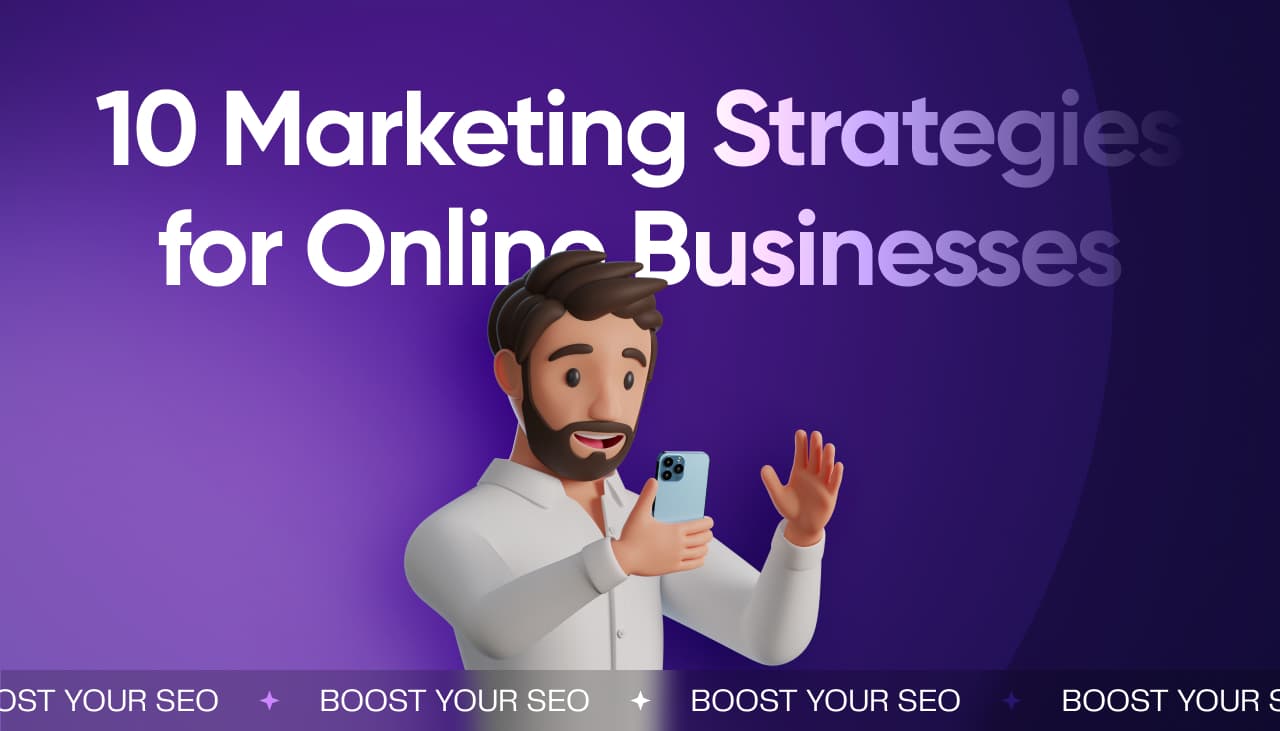







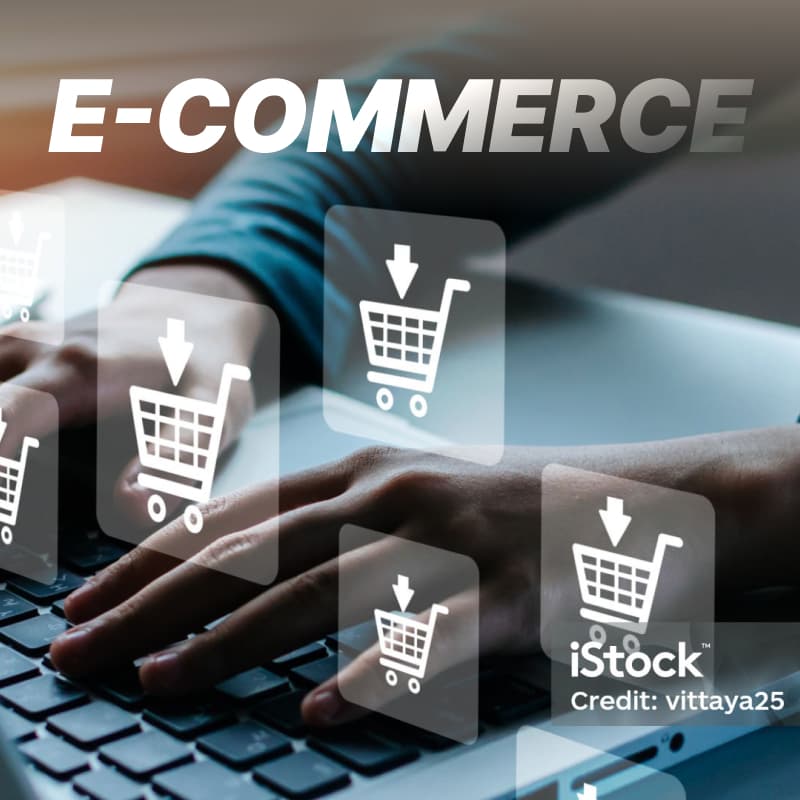


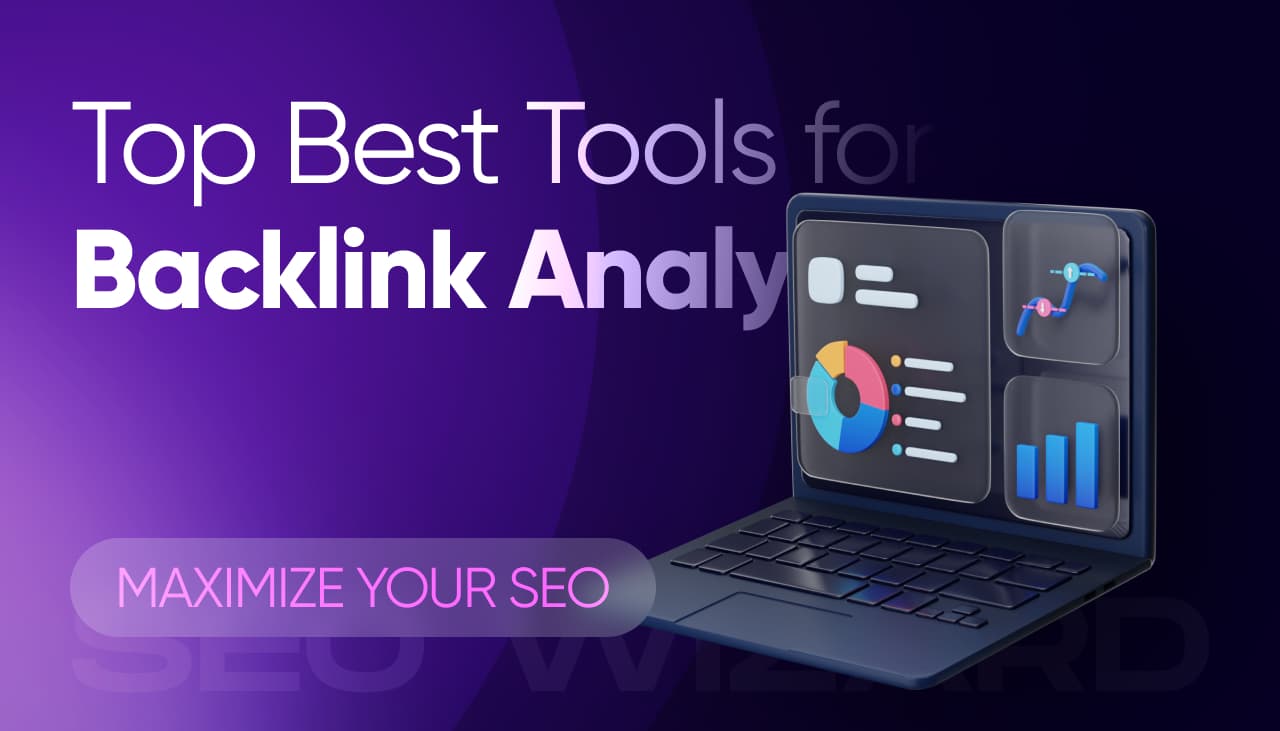
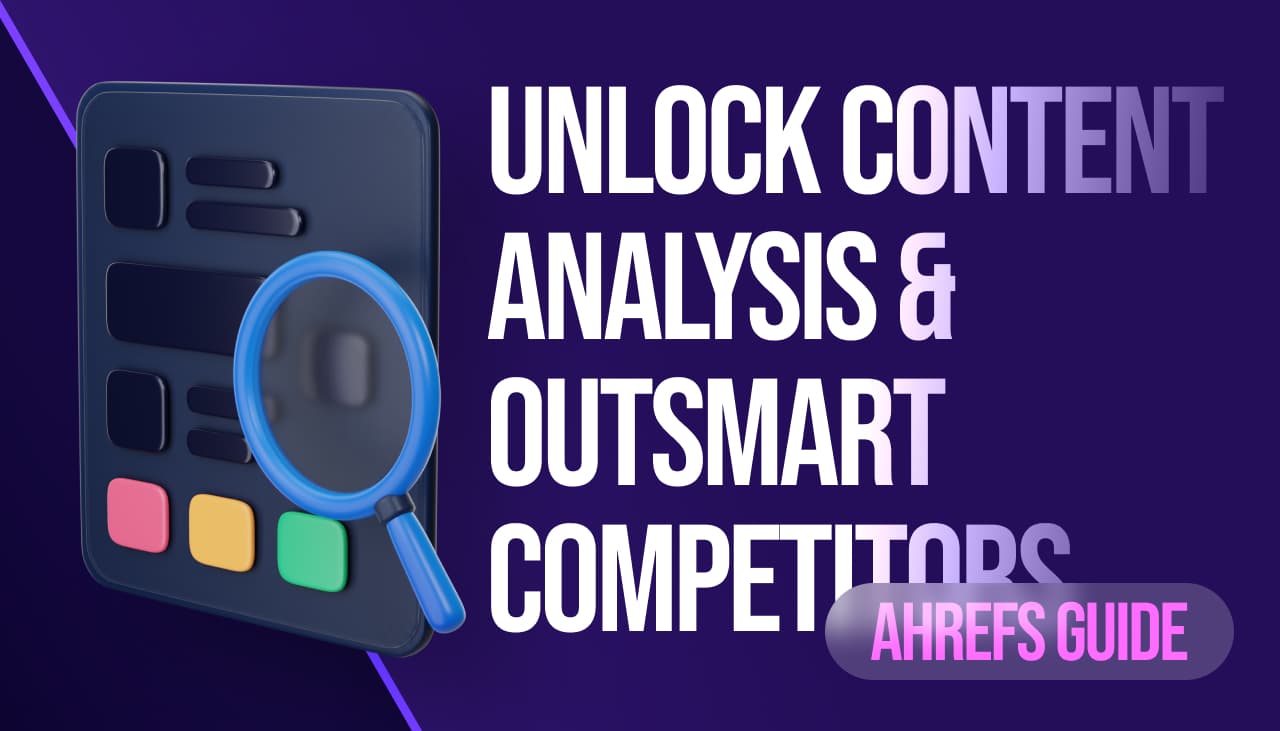
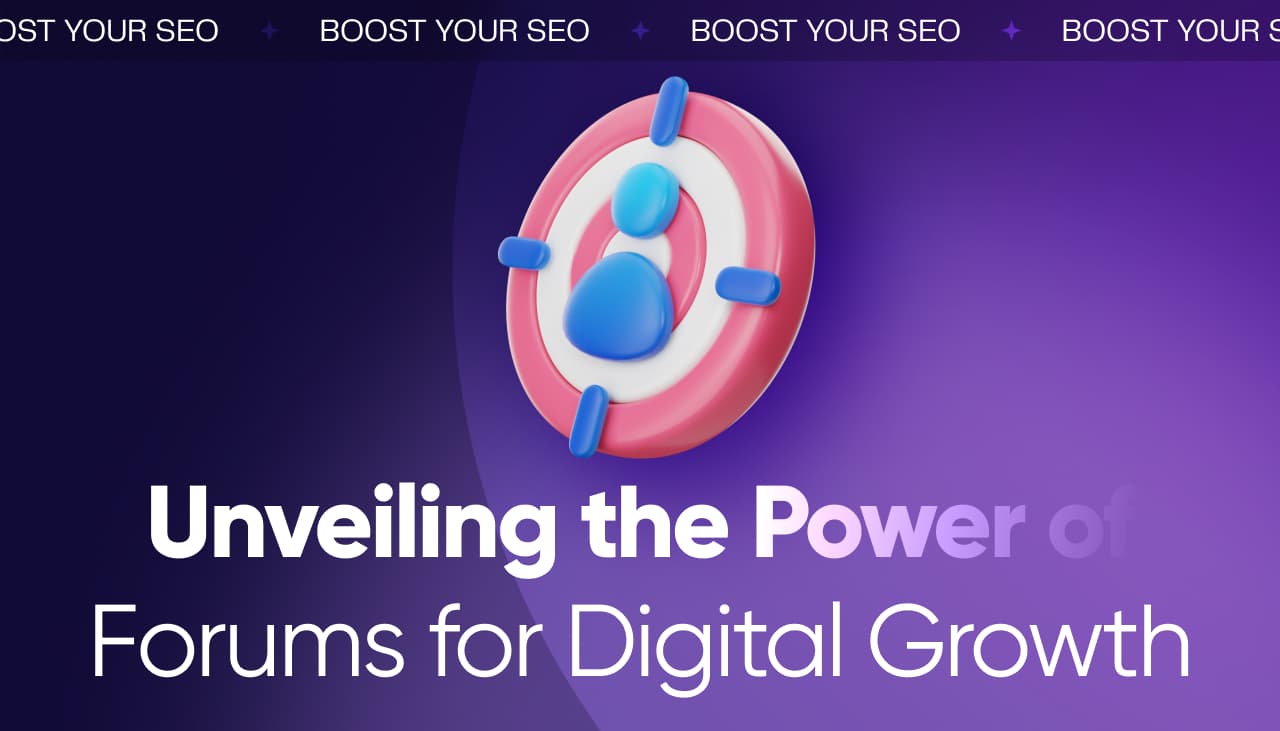
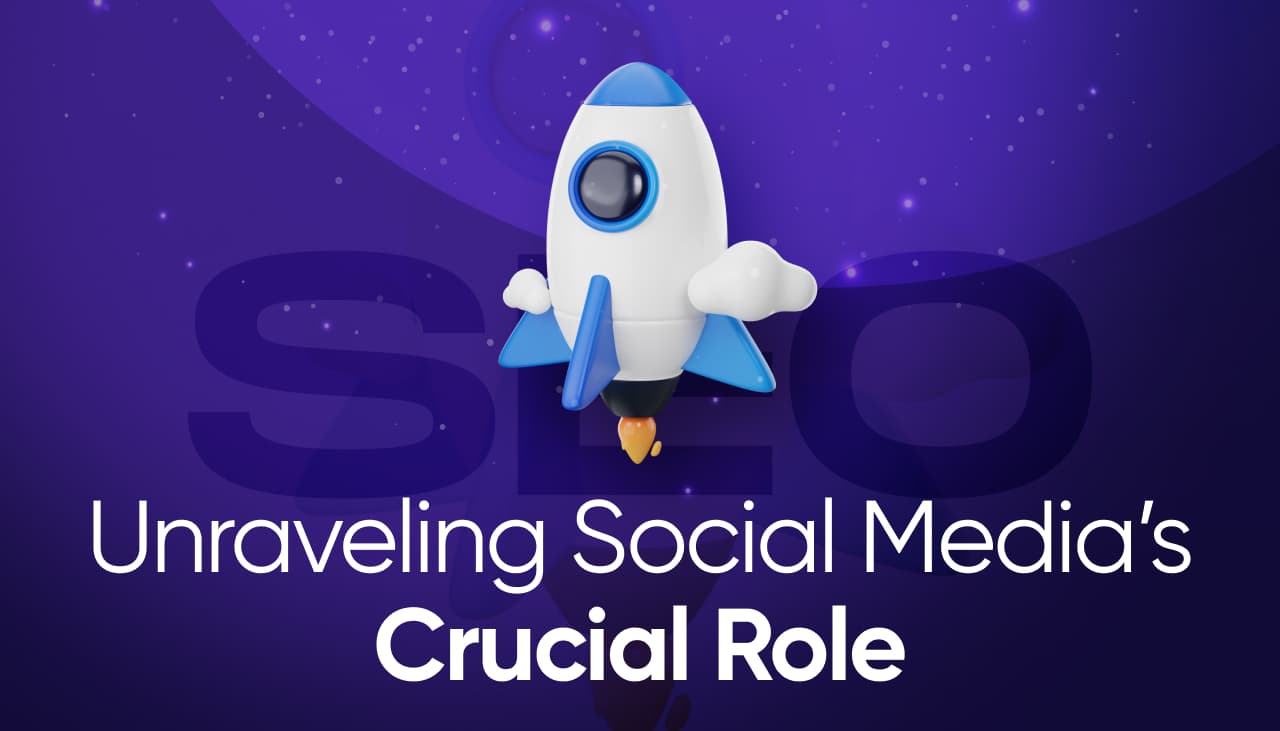
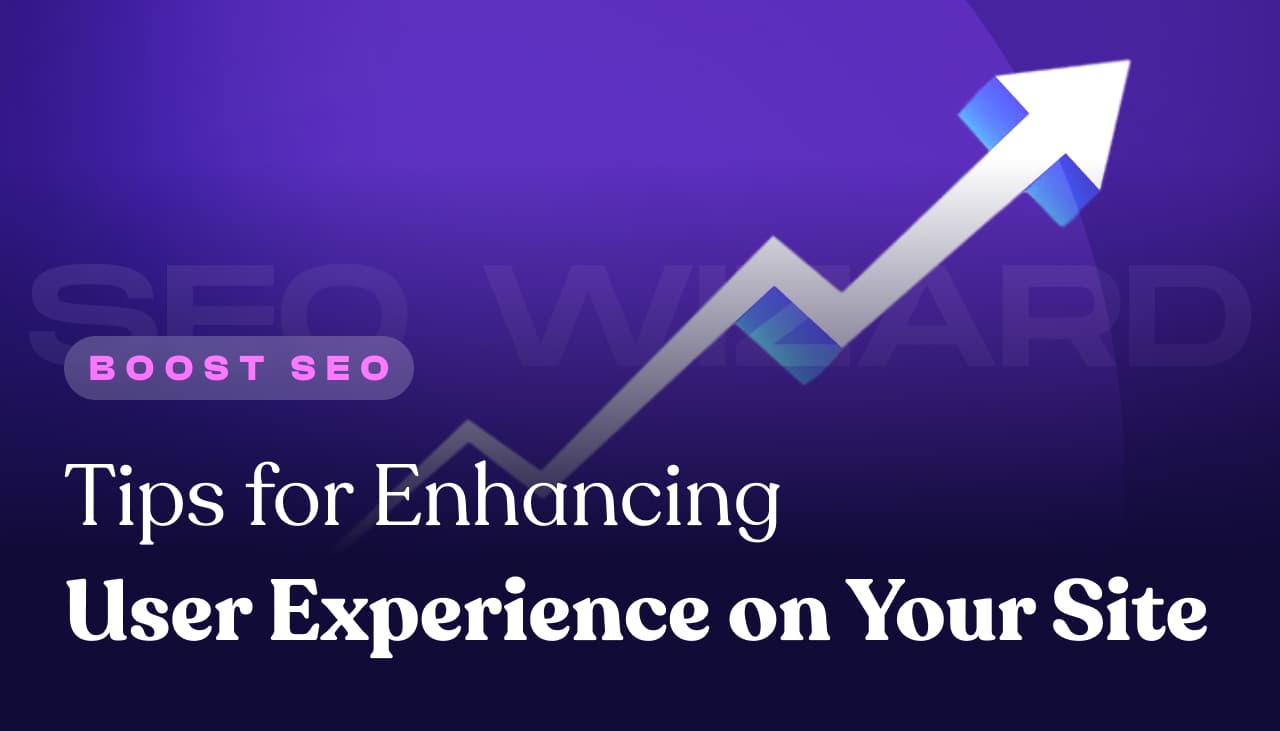
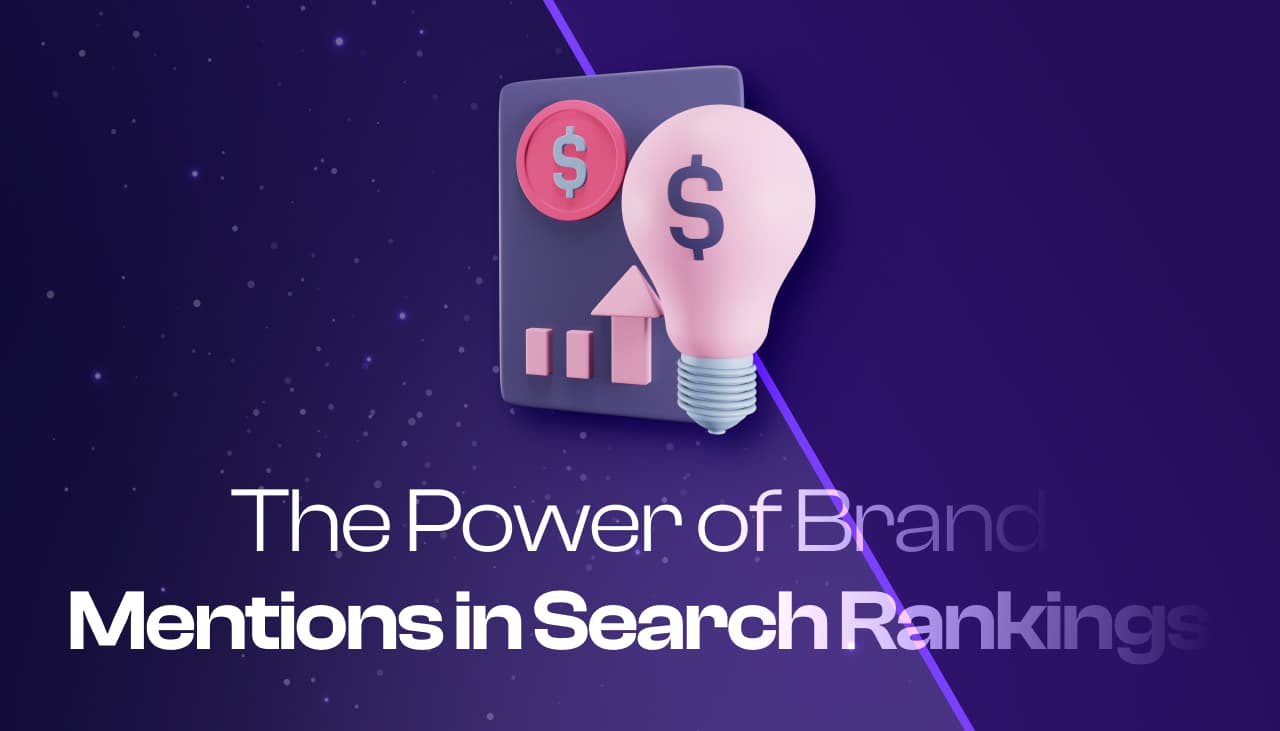
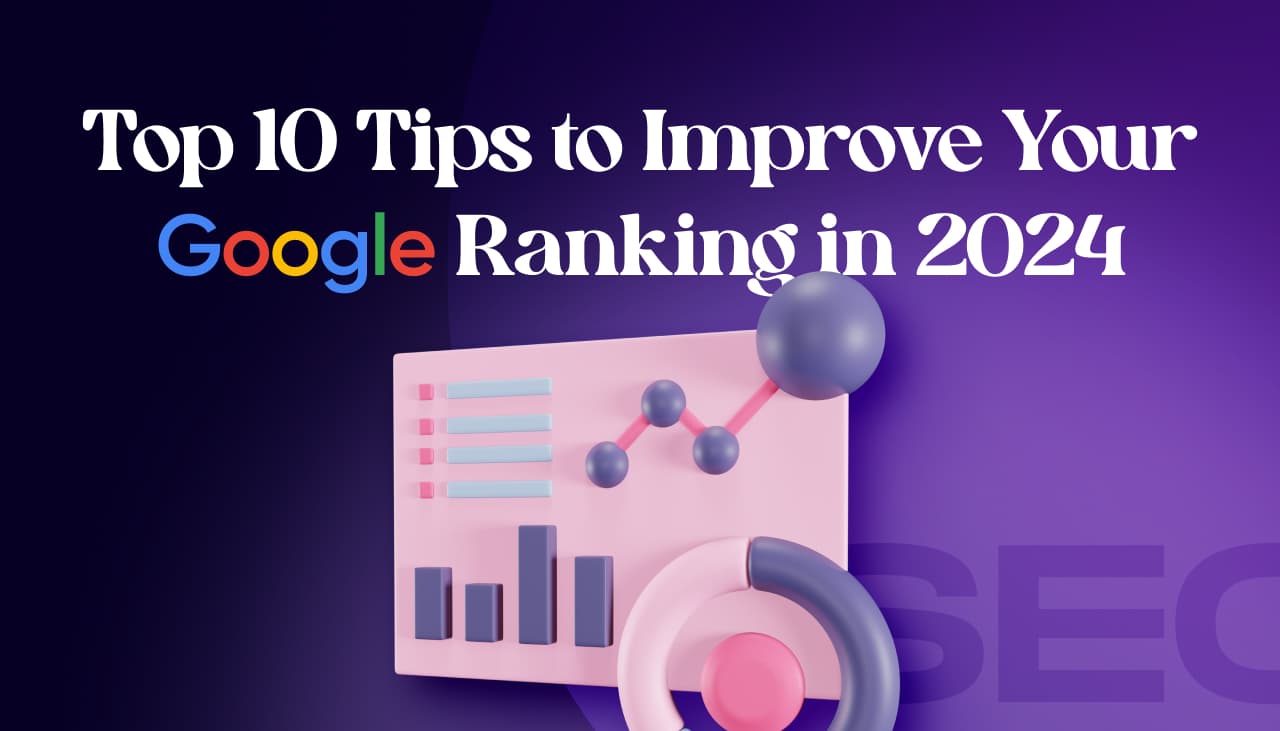

Responses (0 )